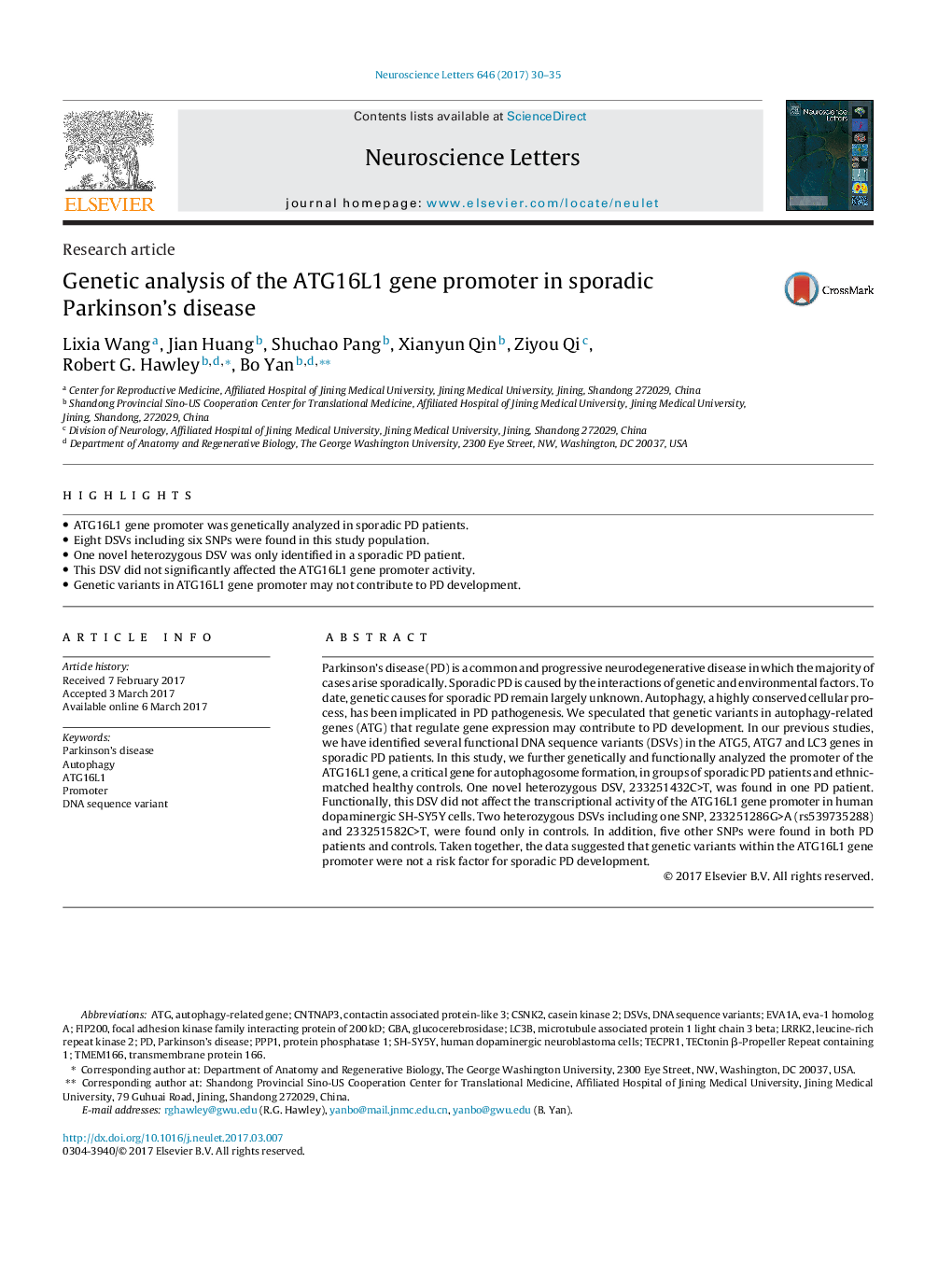| کد مقاله | کد نشریه | سال انتشار | مقاله انگلیسی | نسخه تمام متن |
|---|---|---|---|---|
| 5738698 | 1615053 | 2017 | 6 صفحه PDF | دانلود رایگان |

- ATG16L1 gene promoter was genetically analyzed in sporadic PD patients.
- Eight DSVs including six SNPs were found in this study population.
- One novel heterozygous DSV was only identified in a sporadic PD patient.
- This DSV did not significantly affected the ATG16L1 gene promoter activity.
- Genetic variants in ATG16L1 gene promoter may not contribute to PD development.
Parkinson's disease (PD) is a common and progressive neurodegenerative disease in which the majority of cases arise sporadically. Sporadic PD is caused by the interactions of genetic and environmental factors. To date, genetic causes for sporadic PD remain largely unknown. Autophagy, a highly conserved cellular process, has been implicated in PD pathogenesis. We speculated that genetic variants in autophagy-related genes (ATG) that regulate gene expression may contribute to PD development. In our previous studies, we have identified several functional DNA sequence variants (DSVs) in the ATG5, ATG7 and LC3 genes in sporadic PD patients. In this study, we further genetically and functionally analyzed the promoter of the ATG16L1 gene, a critical gene for autophagosome formation, in groups of sporadic PD patients and ethnic-matched healthy controls. One novel heterozygous DSV, 233251432C>T, was found in one PD patient. Functionally, this DSV did not affect the transcriptional activity of the ATG16L1 gene promoter in human dopaminergic SH-SY5Y cells. Two heterozygous DSVs including one SNP, 233251286G>A (rs539735288) and 233251582C>T, were found only in controls. In addition, five other SNPs were found in both PD patients and controls. Taken together, the data suggested that genetic variants within the ATG16L1 gene promoter were not a risk factor for sporadic PD development.
Journal: Neuroscience Letters - Volume 646, 12 April 2017, Pages 30-35